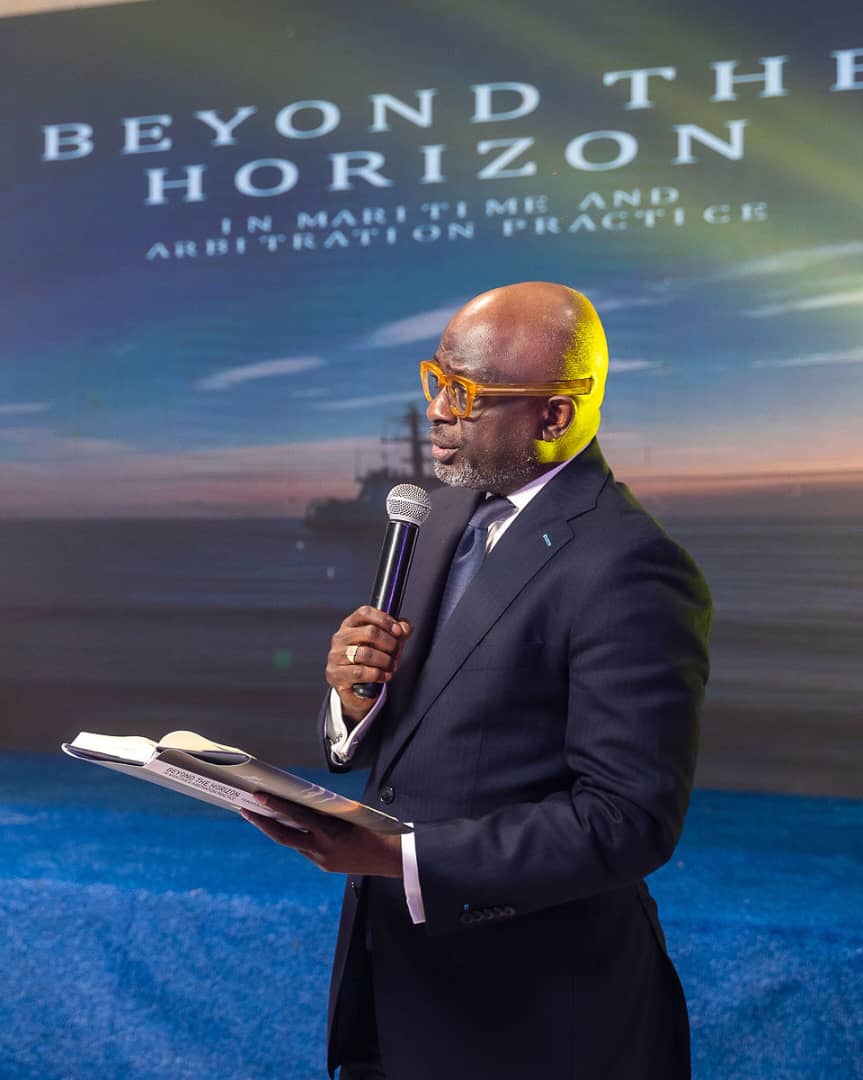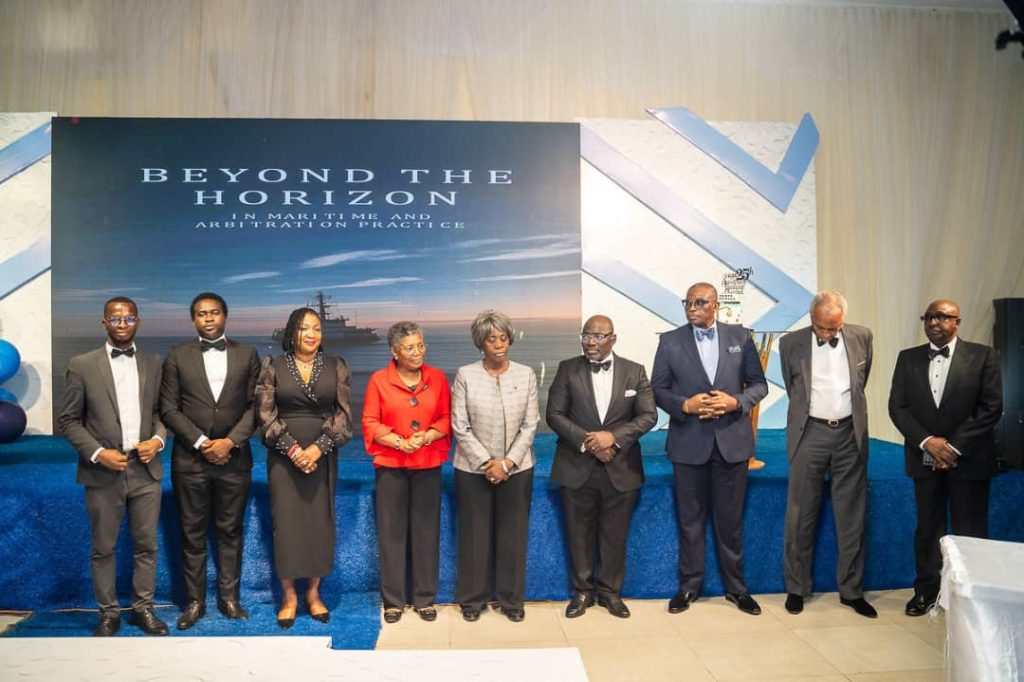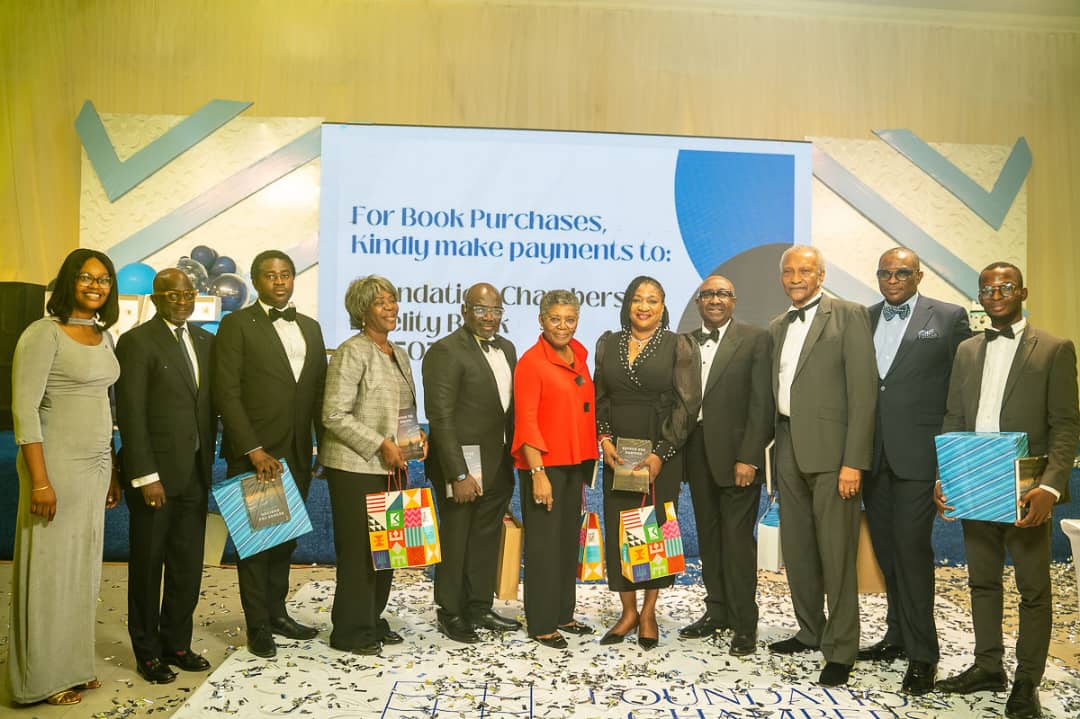We are thrilled to announce the release of “Beyond the Horizon in Maritime and Arbitration Practice”, a book that honours the immense contributions of one of Nigeria’s most distinguished legal minds, Mr. L. Chidi Ilogu, SAN, FCIArb. This comprehensive collection brings together essays by leading legal experts, offering deep insights into the evolving fields of maritime and arbitration law. The contributors to this book address both foundational and emerging issues, providing a valuable resource for scholars, practitioners, and policymakers alike.
The book covers a broad spectrum of topics in maritime and arbitration law, shedding light on critical areas that require reform and advancement. These essays reflect the intellectual rigor and practical expertise of the contributors, making this collection indispensable for anyone interested in the future of these key legal sectors.
Maritime Law: Navigating Complex Issues
The maritime section of the book presents critical discussions on some of the most pressing issues in shipping, cargo claims, and marine insurance law. One of the standout essays by Damilola I. Osinuga (PhD) examines the future of carriage of goods by sea. He reviews current practices, comparing them with international conventions like the Hamburg and Rotterdam Rules, and provides a detailed analysis of what the future might hold for global shipping laws.
Femi Atoyebi, SAN offers a thorough analysis of the taxation of foreign shipowners in Nigeria, tackling the challenges faced by international shipping companies in complying with Nigeria’s tax regulations. His essay is especially pertinent in the context of the country’s growing maritime industry and the complexities of cross-border trade.
- Omolola Allison-Ikwuagwu Esq. explores the legal challenges surrounding the judicial sale of ships. Her work provides an in-depth examination of the issues arising in the transfer of ship ownership through judicial sales and highlights the international efforts to harmonize legal approaches to such sales.
In her essay, Funke Agbor, SAN focuses on the need for effective wreck management in Nigeria’s maritime sector. She stresses the importance of safety, environmental protection, and governance, advocating for improved coordination, funding, and capacity building to enhance wreck management.
Emmanuel Ikwuakolam Esq. takes a deep dive into the Nigeria Shipping and Port Economic Regulatory Agency Bill 2023, analysing its potential to reshape port regulation and strengthen Nigeria’s maritime infrastructure. His essay discusses how this bill aims to address the growing needs of the sector while considering the complexities of existing regulatory frameworks.
Dr. Emeka Akabogu’s essay on marine cargo claims brings a fresh perspective to the interplay between contract, tort, and bailment in Nigerian maritime law. He addresses how these legal concepts interact in the context of Nigerian marine cargo claims and their implications for dispute resolution.
Olumide Sofowora, SAN, C.Arb. offers a comparative study on the classification of floating houses or houseboats in Nigerian admiralty law. His essay addresses the ambiguities in vessel definitions and evaluates the implications for legal clarity and enforcement, particularly in relation to the Coastal and Inland Shipping (Cabotage) Act.
Finally, Oluwole Olukayode Akinyeye (PhD) calls for reform in marine insurance law, particularly regarding warranties. He argues for the introduction of a materiality test to better protect shipowners from the strict enforcement of warranty breaches, offering a compelling case for legislative change.
Arbitration: Reforming Dispute Resolution
The arbitration section of the book features essays on the future of dispute resolution and the evolving role of arbitration in Nigeria and globally. Chief Bayo Ojo, SAN, CON opens the section with a persuasive argument for the advantages of arbitration and Alternative Dispute Resolution (ADR). His essay advocates for the adoption of these methods as faster, more flexible, and cost-effective alternatives to traditional litigation.
Prof. Fabian Ajogwu, SAN explores the impact of emerging technologies on international arbitration. His essay addresses the challenges posed by artificial intelligence and virtual proceedings, emphasizing the need for clear rules and human oversight to maintain fairness in the arbitration process.
Funke Adekoya, SAN discusses the issue of fairness in international arbitration, particularly regarding economic distribution. She highlights the disadvantages often faced by African parties in arbitration, advocating for more equitable processes that ensure fair representation and equal access to justice.
Hon. Justice Ugochukwu Anthony Ogakwu JCA evaluates the effectiveness of arbitration in dispute resolution in Nigeria. His essay considers the growing preference for arbitration over litigation and explores the transformative potential of the Arbitration and Mediation Act 2023 in enhancing the dispute resolution landscape.
Daniel Wilmot presents a detailed analysis of anti-suit injunctions, particularly in the context of the RusChemAlliance cases. His work examines the complex issues surrounding jurisdiction and the interplay between national courts and international arbitration.
Hon. Justice Peter Oyin Affen, JCA contributes to the broader conversation on judicial reform in Nigeria. He advocates for a more independent and merit-based judiciary, emphasizing the importance of addressing the volume of frivolous litigation to improve the efficiency and credibility of Nigeria’s legal system.


A Comprehensive Contribution to Legal Reform
Beyond the Horizon in Maritime and Arbitration Practice is more than just a tribute to L. Chidi Ilogu SAN—it is a vital resource for anyone involved in or interested in the fields of maritime and arbitration law. The essays within this book not only provide valuable insights into current legal practices but also propose forward-thinking solutions and reforms aimed at enhancing the efficacy and fairness of both sectors.
This collection calls for significant reforms in both maritime and arbitration law, urging policymakers, legal practitioners, and the judiciary to take a proactive role in addressing the challenges highlighted by the contributors. Whether it’s modernizing shipping laws, improving the arbitration process, or tackling the complexities of marine insurance, the recommendations made in this book offer a roadmap for advancing legal practice in these critical areas.
We highly recommend Beyond the Horizon in Maritime and Arbitration Practice to anyone looking to deepen their understanding of these fields and contribute to the ongoing conversation about legal reform in Nigeria and beyond.





